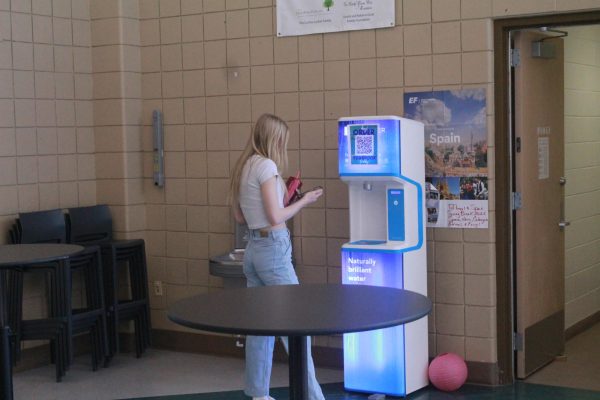Homework
How much is too much?
High school students are struggling to keep a balanced life with their homework overload, extra curricular activities, and family life this year.
Conifer High School encourages students to participate in school sports and clubs. But maintaining a healthy balance between that and homework has proven to be a challenge with unintended consequences.
“I probably get about five hours of sleep… my normal amount of sleep is probably around eight hours.” Ashley Silvernale, a sophomore, said.
Other sophomores expressed their similar lack of sleep due to their homework.
“I do my homework until I’m done with it. And that usually lasts until like 11:30 or 12. And then I have to wake up at five to get on the bus,” sophomore Elie Nesline said.
“I haven’t been getting any sleep. I have committed to rock climbing, two days a week. I get home really late, so I’m up doing homework until sometimes twelve or one in the morning,” sophomore Samantha Ferguson said.
Parents acknowledge their struggle.
“She doesn’t get a lot of sleep because of how late she has to stay up to do homework. She has been pretty upset about the amount that she has,” Wendy Nesline, a mom, said.
Students have additionally shared their heightened stress levels.
“It causes my life to be a lot more stressful, especially at home. Because I feel forced to have to do homework… I don’t think the teachers realize that we have homework going on in other classes,” Silvernale said.
“I know students say this a lot, that we think teachers don’t understand that we also have other classes, but it’s so true.” Ferguson said.
Some teachers believe that high school students should get more homework to prepare them for college.
“My approach to homework is that I never want to give busy work, and I want it to be aligned to what they will expect in college,” Erika Peterson, English teacher, said.
Students don’t appreciate busywork, according to Ferguson. So they like it when teachers give them meaningful homework. Students want teachers to prepare them for college, however not through large amounts of homework.
“Maybe in college, we’ll have a lot of homework and an insane homework load, but we also won’t have seven hours of school every day. So it’s a little different in college,” Ferguson said.
Students argue that teachers assume they have enough time in school to finish homework but even if they use their time wisely, they still end up with an average of three additional hours of homework every night.
“I feel that it’s not fair for students because teachers think we should get our homework done during study hall and seminar, and most students do their homework during these times, but it’s not enough time to get all our homework done,” Nesline said.
Students who take advanced courses understand that they’ll have more homework than their regular courses, but some say that their regular courses have the amount of homework that you’d expect in an honor’s class.
“I’m only taking only half of my classes in honors and AP, but still, even my regular classes have been getting the same amount of work as my honors,” Ferguson said.
According to the National Education Association, a good rule of thumb is that high schoolers should have around two hours of homework every day.
“The National PTA recommendations fall in line with general guidelines suggested by researcher Harris Cooper: 10-20 minutes per night in the first grade, and an additional 10 minutes per grade level thereafter,” The NEA wrote.
More homework than that could raise unintended consequences, according to researchers who conducted a survey to analyze connections between homework and student well-being. This data was collected from students in 10 high-performing high schools in upper middle class communities, like Conifer.
“Results indicated that students in these schools average more than three hours of homework per night. Students who did more hours of homework experienced greater behavioral engagement in school but also more academic stress, physical health problems, and lack of balance in their lives,” Mollie Galloway, Jerusha Conner and Denise Pope wrote.
This fall semester, academic stress levels are rising.
“I think students get upset about it (homework) because they have so many other things to do and that just causes anxiety around, ‘I gotta get this done and I gotta get this done and I gotta get this done and oh my gosh I got to go over here and do this’,” Carrie Vanni, student counselor, said.
Many students who are involved in after school sports feel even more of this pressure.
“I wish my homework would just be a little less, because it would make my life a lot easier. And I wouldn’t have to stress about getting homework done after softball practice,” Silvernale said.
CHS encourages high schoolers to participate in school sports and activities while maintaining academic achievement.
“We see statistics that show that if you are more involved in the school you do better in school. So absolutely, I would always encourage people to do some sort of activity or sport or something to get them engaged. It comes back to balance,” Vanni said.
Some teachers give less homework to their students for this reason.
“I feel that the students have too much homework and not enough time to spend with their families or to do sports and activities.” Melissa Aguilar, Spanish teacher, said.
Student Media adviser Leslie Thompson agrees.
“I think when someone leaves school that they should be able to go home and be present to family, to job responsibilities, even to their pets. I think that young people today need time to decompress. And so I’m less a fan of homework than I used to be,” Thompson said.
Students are working hard to keep up with their lives but find it difficult to balance their studies with everything else.
“It feels like a lot of pressure on your shoulders. And if you don’t get it done, you panic and choke up. You can’t focus on life, you can only focus on your homework,” Silvernale said.




